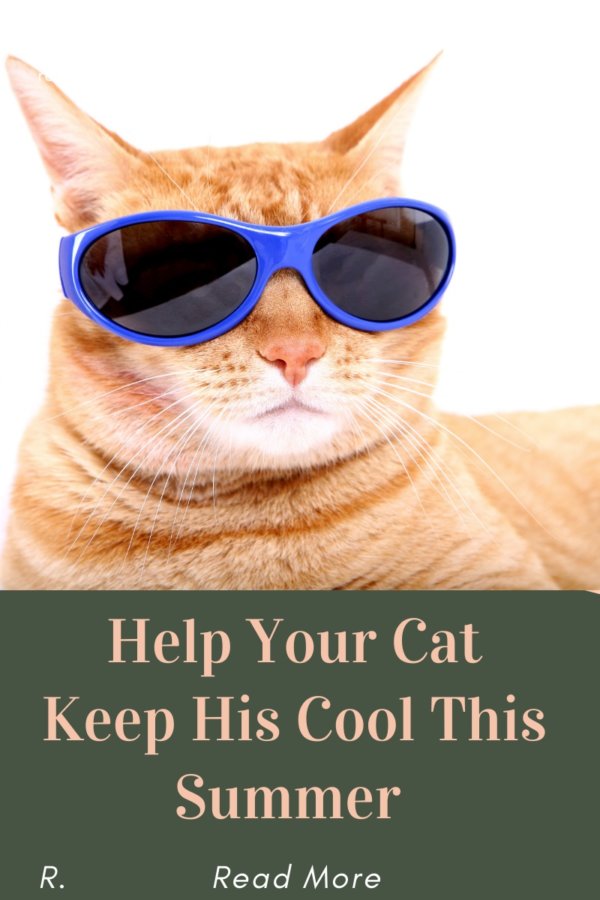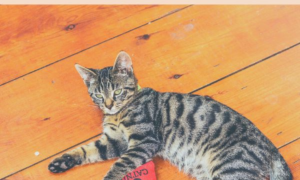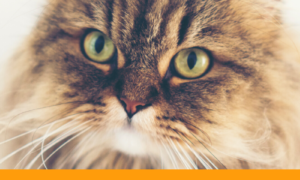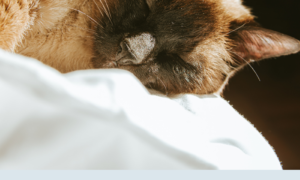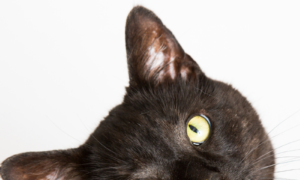Summer is right around thecorner! This may be your favorite time of year, but for your cat, this season can mean a host of health troubles. Fleas top the list, along with other issues that can make these months miserable for your feline. Here’s what you need to know to tackle summer cat health concerns:
Disclosure: This post contains affiliate links. We receive a small commission on goods purchased via this link, at no additional cost to you.
Summer Cat Health Concern No. 1: Fleas
Fleas thrive in summer heat and humidity. Although over-the-counter products and flea collars may help, topical prescription medications tend to offer the best protection. The medication is applied directly to your cat’s skin to kill existing fleas and prevent future infestations. I don’t like the idea of putting chemicals on my pets, I prefer natural products such as Easy Defense Flea Control.
The length of time to apply this medicine depends on where you live, so be sure to consult with your veterinarian. Flea medicine isn’t just for outdoor cats, either.
No. 2: Allergies
Excessive scratching, biting at the base of the tail and red, inflamed skin are allergy symptoms. The most likely triggers? Fleas and pollen. For allergies related to the latter, cut your cat’s exposure to pollen by regularly changing air conditioning filters and washing your cat’s bedding, dusting, vacuuming and keeping your cat inside.
There are a variety of natural supplements, such as NOW Pets Allergy Relief, to relieve allergies in cat. In more severe cases, your veterinarian may also prescribe medication or give allergy shots to treat pollen-related health problems in your cat. There are some over-the counter medications that may also relieve your cat’s allergy symptoms, Discuss possible options and dosage with your veterinarian before administering.
No. 3: Hairballs
Although spring is the main shedding season for cats, indoor cats also shed when it’s hot, ingesting more hair and spitting up hairballs. Frequently brushing your cat helps. Natural solutions such as adding pumpkin to your cat’s food provide additional fiber that helps hairballs pass easily through the digestive tract. I add a tablespoon to Marty’s food daily.
Another solution is olive oil. Adding a teaspoon of olive oil per week to your cat’s diet lubricates the digestive system to allow easier passage of hairballs. If your cat has other health issues, check with your vet before beginning this dietary change.
No. 4: Heat-related Illnesses
Dehydration and heat stroke can plague pets. Although they are less likely than dogs to be in situations where heat is an issue, cats can still get sick from heat. Always make sure your cat has water and a cool place to rest. If you have air-conditioning, keep it running during heat waves. If you don’t have air-conditioning, turn on an indoor fan.
Another option is a cooling mat. They can be a big relief from the heat for both cats and dogs. Look for mats that don’t need refrigeration or electricity to stay cool.
No. 5: Fireworks
This year, fireworks may not be as big an issue as usual. The din of these celebrations can make cats anxious and skittish, forcing them into hiding. Close your doors, windows and curtains during firework displays. Also turn on soothing music or the TV to help drown out the noise, especially if you’re going to be gone when the fireworks are scheduled to go off. There are a variety of calming solutions such as Feliway that provide a phrenmone-base to ease anxiety.

